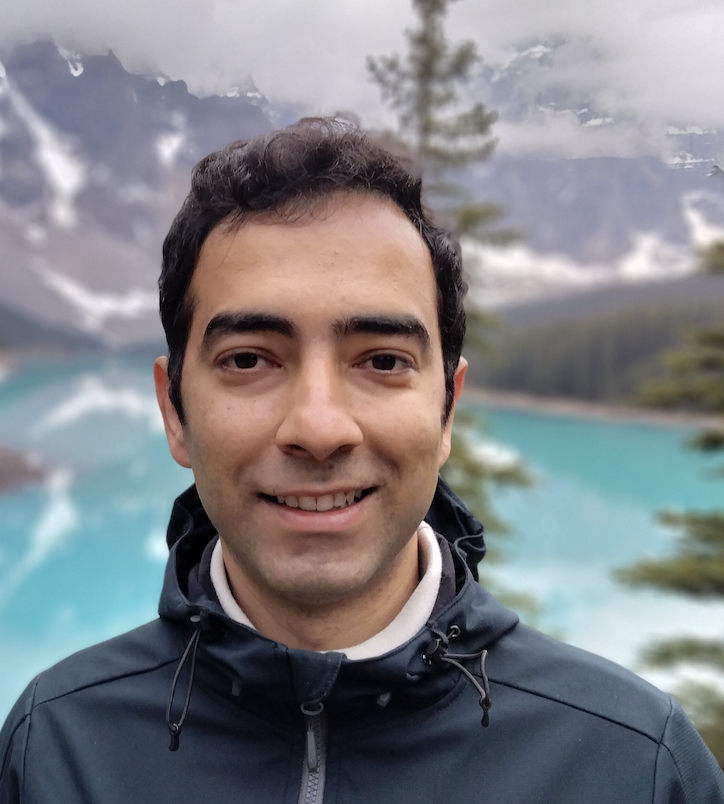A reading list of philosophy of mathematics and science
| [1] | David Hilbert. Über die grundlagen der geometrie. Math. Ann., 56:381--422, 1902. [ bib | DOI | www: ] |
| [2] | Arthur S. Eddington. The nature of physical world. 1927. Gifford's lecture: https://www.giffordlectures.org/lectures/nature-physical-world. [ bib | DOI | .pdf ] |
| [3] | Rudolf Carnap. Der logische aufbau der welt. 1928. [ bib | DOI | www: ] |
| [4] | Hermann Weyl. Das kontinuum. 1932. English translation: The Continuum: A Critical Examination of the Foundation of Analysis, translated by Stephen Pollard and Thomas Bole, Thomas Jefferson University Press: 1987. Corrected re-publication, Dover 1994. [ bib | DOI | www: ] |
| [5] | Paul Benacerraf. What numbers could not be. Philosophical Review, 74:47--73, 1965. [ bib | DOI | www: ] |
| [6] | Alexander Grothendieck. Récoltes et semailles: Réflexions et témoignages sur un passé de mathématicien. 1985--86. 1985. [ bib | DOI | .pdf ] |
| [7] | Robert L. Long. Remarks on the history and philosophy of mathematics. The American Mathematical Monthly, 93(8):609--619, 1986. [ bib | DOI | www: ]A very good stylish introduction to the pressing issues in the philosophy of mathematics, the article puts forward the view that proofs are primarily forms of mathematical discourse. It also gives a compelling critique of distinction between pure and applied mathematics by challenging the supremacy of "the tool view of mathematics" in our conceptualisation of role of mathematics. It feels to me that there is a clear influence of Heidegerrian realism and Foucucault's theory of discourse upon this article. |
| [8] | Warren Goldfarb. Poincare against the logicists. History and philosophy of modern mathematics, edited by William Aspray and Philip Kitcher, Minnesota studies in the philosophy of science, 11:61--81, 1988. [ bib | DOI | .pdf ] |
| [9] | Howard Stein. Logos, logic, and logistike. Phillip Kitcher, eds., History and Philosophy of Modern Mathematics., pages 238--259, 1988. [ bib | DOI | .pdf ] |
| [10] | Felix E. Browder. Mathematics and the sciences. History and Philosophy of Modern Mathematics, Minnesota Studies in the Philosophy of Science, xi, 1988. [ bib | DOI | .pdf ] |
| [11] | Solomon Feferman. Weyl vindicated: Das kontinuum 70 years later. in Temi e prospettive della logica e della filosofia della scienza contemporanee, I, Bologna, 59–93 - Reprinted in Feferman, S. In the Light of Logic, Oxford University Press, New York, pages 249--283, 1988. [ bib | DOI | www: ] |
| [12] | John Etchemendy. The concept of logical consequence. 1990. [ bib | DOI | www: ] |
| [13] | Stewart Shapiro. Foundations without foundationalism : A case for second-order logic. 1991. [ bib | DOI | www: ] |
| [14] | Steve Awodey. Structure in mathematics and logic: A categorical perspective. Philosophia Mathematica, 4(3):209--237, 1996. [ bib | DOI | www: ] |
| [15] | Pierre Cartier. A mad day’s work: from grothendieck to connes and kontsevich. the evolution of concepts of space and symmetry. Bulletin of the AMS, 38(4):389--408, 2001. [ bib | DOI | http ] |
| [16] | Hermann Weyl. Mind and nature: Selected writings on philosophy, mathematics and physics. 2002. Edited and with an introduction by Peter Pesic. [ bib | DOI | www: ] |
| [17] | M. Van Atten, D. Van Dalen, and R. Tieszen. The phenomenology and mathematics of the intuitive continuum. Philosophia Mathematica, 10:203--226, 2002. [ bib | DOI | www: ] |
| [18] | Colin McLarty. The rising sea: Grothendieck on simplicity and generality i. 2003. [ bib | DOI | .pdf ] |
| [19] | Jeremy Avigad. Number theory and elementary arithmetic. Philosophia mathematica, 3(11):257--284, 2003. [ bib | DOI | .pdf ] |
| [20] | Geoffrey Hellman. Does category theory provide a framework for mathematical structuralism? Philosophia Mathematica, 11(3):129--157, 2003. [ bib | DOI | www: ] |
| [21] | Steve Awodey. An answer to G. Hellman’s question “Does category theory provide a framework for mathematical structuralism?”. Philosophia Mathematica, 12(3):54--64, 2004. [ bib | DOI | www: ] |
| [22] | E. Landry and J.P. Marquis. Categories in context: Historical, foundational, and philosophical. Philosophia Mathematica, 13(3):1--43, 2005. [ bib | DOI | www: ] |
| [23] | Barry Mazur. When is one thing equal to some other thing? In B. Gold and R. A. Simons, editors, Proof and other Dilemmas: Mathematics and Philosophy, pages 221--241, 2008. [ bib | DOI | .pdf ] |
| [24] | Jean-Pierre Marquis and Gonzalo Reyes. The history of categorical logic 1963–1977. 2011. [ bib | DOI | .pdf ] |
| [25] | Steve Awodey. Structuralism, invariance, and univalence. Philosophia Mathematica, 22(3):1--11, 2014. [ bib | DOI | www: ] |
| [26] | John L. Bell and Herbert Korté. Hermann weyl. In Edward N. Zalta, editor, The Stanford Encyclopedia of Philosophy. Metaphysics Research Lab, Stanford University, winter 2016 edition, 2016. [ bib ] |
This file was generated by bibtex2html 1.98.
